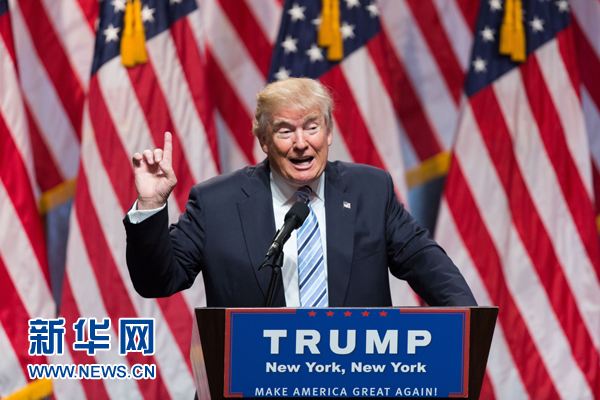Trump's Afghan strategy and Pakistan
- By Sajjad Malik
 0 Comment(s)
0 Comment(s) Print
Print E-mail China.org.cn, August 29, 2017
E-mail China.org.cn, August 29, 2017
|
|
|
U.S. President Donald Trump [Xinhua] |
There is only one substantial change in the new U.S. policy towards Afghanistan that was announced by Donald Trump after seven months in office. The new strategy has rejected any artificial timeline to withdraw from Afghanistan. The rest of it is all too familiar.
And yet it is too early to say whether or not having a definite timeline at this juncture of the war in Afghanistan is good or bad. There are merits and demerits.
Trump's predecessor Barack Obama set an end date of 2014 as the deadline to pullout the bulk of troops from Afghanistan after years of futile efforts to win the war. His administration stuck to this despite huge criticism that it would serve as a major incentive for militants to lay back and wait for the international troops to go back.
Post-drawdown events showed that much of the criticism was correct. After more than two and half years since the handing of security responsibility to local Afghan forces, nearly 40 percent of the country has gone back to the rebels.
Trump has been critical of Afghan policy since his election campaign. He had promised to change it to win the longest war in America's history. After weeks and months of closed door consultations, he had delivered a kind of blue print of his ideas on Afghanistan and South Asia.
He has failed to take into account some of the mistakes by the successive administrations. Instead, he willingly hugged the narrative built through years that Pakistan is the "epicenter" of all the problems of Afghanistan, and by whipping it hard, things can change.
The second parallel streak in the policy is to give a greater role to India in Afghanistan. It appears that American policymakers have decided that it is only India which has a magic wand to undertake all socio-economic development in impoverished Afghanistan.
India may have some good ideas for Afghanistan but those aware of strategic issues understand that its real objective is to have a foothold advantage against arch-rival Pakistan. Strategic understanding between Afghanistan and India vis-à-vis Pakistan may not necessarily resonate with the U.S. calculations but it would eventually spoil any chances of peace.
It highlights a major contradiction in the American policy. It is true that Pakistan is important for stability and peace in Afghanistan due to historic links with the Taliban, but it has major problems with India including the territorial dispute over Kashmir. Despite this knowledge, Trump is adamant to give a formal role to India in Afghanistan by rejecting all the concerns of Pakistan.
It means that in the wider regional context, it is important to address the Pakistan-India tangle first, or at least to institute a parallel process for sorting out differences between Pakistan and India. Instead of addressing this major divisive issue, the U.S. is trying to have its way by boosting the role of India while asking Pakistan to "do more."
Trump's policy has also accused Pakistan (like his predecessor) of being a safe haven of militants and supporting the Haqqani network of militants. But there are scores of Taliban militants who escaped from Pakistan and are hiding along with their leader Mullah Fazlullah in Afghanistan and frequently launch cross-border attacks.
Pakistani intelligence agencies have maintained that these militants have the support of India and Afghanistan. Without going into the veracity of any such assertions, the new policy should have also highlighted those rouge elements involved in creating mayhem in Pakistan which has suffered more than 60,000 deaths and over 100-billion dollars of losses in the war on terror.
I am not defending the policies of Pakistan, some of which have turned on head to gnaw on the soul of the country. Pakistan, despite recent advances against militants, still needs to go a long way to completely eliminate the threat of home grown extremism.
But a policy coming out of Washington after months of painstaking discussion should be realistic. For example, instead of just seeking military victory it is far more important to sort out the issue of governance in Afghanistan which is currently a dysfunctional diarchy. Rampant corruption, low salaries and a non-existent economy are some of the problems which have foiled efforts for peace.
The United States has spent billions of dollars of tax-payers money without a clear exist strategy. They don't have one even after 17 years. The one announced by Trump may also prove to be a non-starter. They can press Pakistan and may get some short term gains but it will backfire in the long term.
Sajjad Malik is a columnist with China.org.cn. For more information please visit:
http://www.china.org.cn/opinion/SajjadMalik.htm
Opinion articles reflect the views of their authors, not necessarily those of China.org.cn.







Go to Forum >>0 Comment(s)